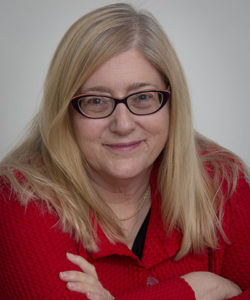A Memoirist Discovers the Magic of Fiction
Linda Joy Myers
A memoirist for decades, I’m still in a bit of shock having just published a novel! My debut historical fiction book The Forger of Marseille was released in early July, and so far all signs suggest that people are interested in reading about WWII France. As pleased as I am about that, I’m still reverberating from the steep climb of my journey to get to the top of the mountain and get the book into the world. That’s funny because one of the moments that turned the tide and urged me to write this novel took place on a road that crossed the Pyrenees foothills.
It’s interesting to consider how creativity manifests: a sensation, an idea out of the blue, a sudden aha, something that keeps tapping on your shoulder. A few years ago, I’d become obsessed by the story of an American, Varian Fry, who fought to save refugees who were trapped in France after the German Occupation. The story of his heroism doesn’t appear in most history books. He was a thirty-two-year-old journalist who’d been deeply affected by witnessing Hitler’s brutality in Berlin. A member of the Emergency Rescue Committee in New York, he volunteered to go to France and help refugees get papers to escape to America. He was due home in two weeks.
When France fell, The Germans created an armistice agreement for the collaborationist Vichy government under Petain that included a “Surrender on Demand” clause. Germans, Austrians, Czechs, and others who’d become stateless and vulnerable to arrest, were to be rounded up by Vichy and handed to the Gestapo. Hitler was hunting Jews, but he was also hunting antifascists, anyone who didn’t represent the regime—journalists, artists, and political people. Artists like Max Ernst, Chagall, and Andre Breton were on the list. To be able to think independently was a crime. To say no to the dissolution of democracy and human rights was a crime.
Varian Fry arrived in Marseille with $3000 taped to his leg and a list in his pocket. He ended up staying a year, putting his life on the line to help refugees escape. The day after his arrival, streams of people lined up outside his door at the Hotel Splendide, begging for funds, for tickets, for papers. He quickly set up a system and within two weeks, guides were leading refugees over the Pyrenees to Spain. From there, on to Lisbon, where they’d get a ship to America. If they weren’t captured on the way.
The Americans didn’t support Fry’s operation, but refugee volunteers from across Europe risked their lives to help. A few offered funds, like Peggy Guggenheim, and others became guides and forged the necessary papers—a death sentence awaited anyone who was caught. As I learned about all this, I could see a story unfolding before me, and the flash of an idea about writing a novel but I passed it off. I’m not a novelist. I don’t know how to make things up. How do you decide what happens and how your characters behave?
But the powerful and tragic history of that time and place wouldn’t leave me alone. Characters evolved in my imagination—a body part I wasn’t accustomed to using as a memoirist. Yes, we use imagination to write vividly, but we don’t manufacture people, events, and cliff hangers out of thin air. When you write a novel, you do just that.
I tentatively began writing, but when I visited France in 2018, I wasn’t fully committed to the project. But I’d gotten to know two characters plucked from a previous unpublished novel about Jews in Berlin: Mr. Lieb, a luthier and violin teacher, and his young protégé, Sarah, the daughter of his best friend who’d died from his WWI wounds. In serious danger, they escaped from 1938 Berlin to Paris where for a brief time they enjoyed peace, but the drumbeat toward war was constant. In June 1940, along with thousands of others, they fled the German army during the exodus and arrived in Marseille.
At the top of the Pyrenees foothills on the border of Spain and France you can see both countries and the deep blue Mediterranean Sea in one glance. I’d pulled off the narrow road to view a memorial to the Spanish refugees who’d died there trying to escape Franco’s soldiers at the end of the Spanish Civil War. I stood quietly as a witness, honoring the dead. The wind tugged at my hair, and I sensed a presence. Grasses rustled, a voice whispered in my ear: “I’m Cesar, and you need me in your book. What happened to my people is important to your story. Your character Sarah needs me to help her.”
Well, what do you do when a character talks to you on a mountain? I stood taller, pulling my shoulders back, empowered in a new way to see the project through.
“All right,” I said into the wind. “Dammit, I’ll write the book!” Me, write a novel about WWII, Vichy France, and the refugees? A Spanish guy??
The following year, I returned to that mountain to find Cesar, this time braving torrential rains in my little Fiat, windshield wipers flapping. Rocks tumbled from the cliff face on the way up through twists and turns. At the top, I stood again where Cesar had spoken to me.
“All right,” I told him. “I’m writing the book. You were right.”
By then I knew him, how his dark eyes were soft as he gazed at Sarah, how he’d risk his life many times. I knew his passion for justice.
A gust of wind blew off my hat. I couldn’t quite hear what he said, but a warm feeling came over me as I drove down that mountain, ready for the next chapter.



One Response
Writing is a personal journey. Ideas and characters seep into your mind like magical specks of color and grow into a brilliance of a novel. I think the fascination with WWII is on-going and anything featuring Paris, adds to the multi layers. Congratulations.